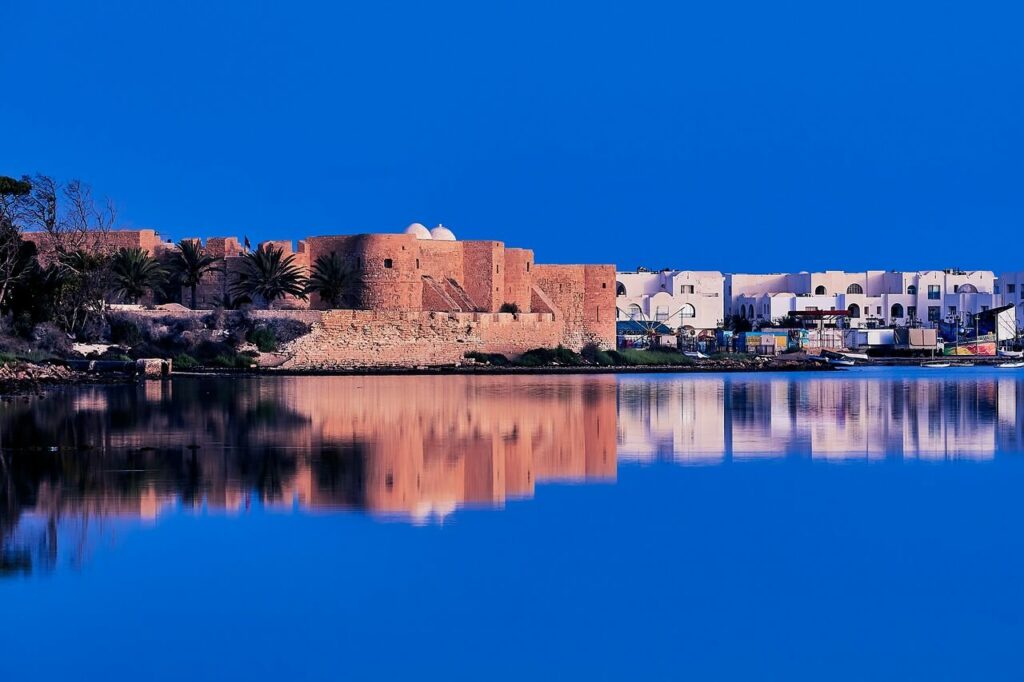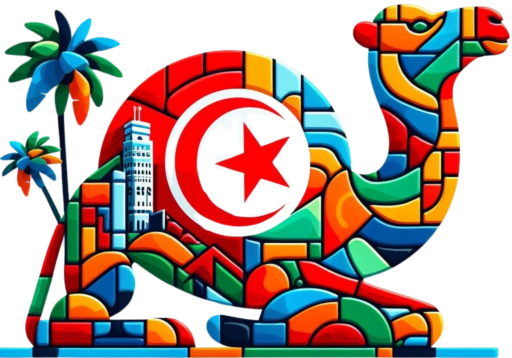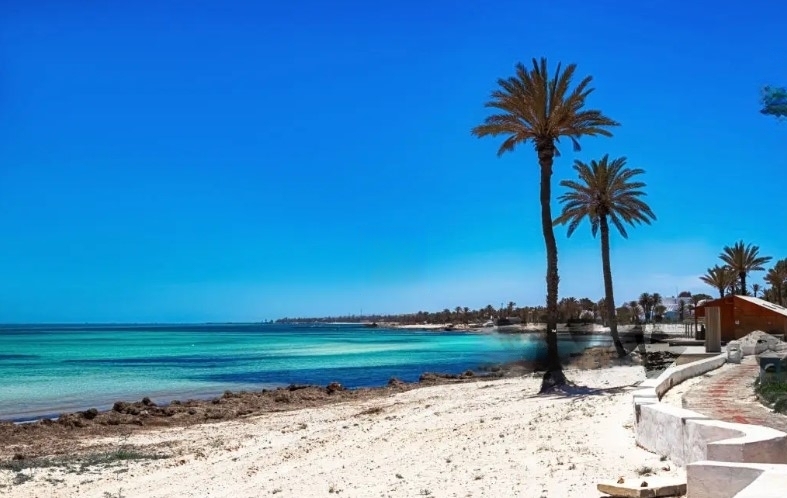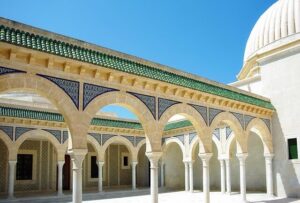Djerba: An Enchanted Island Between Beaches and Traditions
Djerba, an enchanting island off the Tunisian coast, is a popular tourist destination known for its postcard-perfect beaches, rich history and vibrant culture. With a mild climate all year round and a variety of activities to offer, the Tunisian island is the perfect destination for a relaxing beach holiday, an immersion in the local culture or an adventure to discover unique places.
It has also recently been included in the list of UNESCO sites.
Discover Djerba
Also known as the island of dreams, Djerba is the largest island in North Africa, famous for its white sand beaches, crystal clear waters and picturesque white villages. But this jewel is not just sea: the island boasts a thousand-year history and a culture rich in influences, which make it a fascinating destination to discover.
Exploring the island means immersing yourself in a magical atmosphere, among traditional markets, ancient synagogues and breathtaking landscapes and this offers an authentic and unforgettable experience to every traveler.
Whether you are looking for relaxation, culture or adventure, Djerba will win you over with its timeless beauty and the warm hospitality of its people.
Djerba Weather: Ideal Climate All Year Round
Djerba enjoys a Mediterranean climate, with hot and dry summers and mild and temperate winters. The average annual temperature is around 20 degrees, making the island a perfect destination in every season.
The best time to enjoy its beaches is from May to October, when the sun shines and the sea temperatures are ideal for swimming and relaxing. However, spring and autumn also offer pleasant days to explore the island and discover its cultural attractions.
Thanks to its mild climate, it is ideal to enjoy a beach holiday even out of season, with the possibility of practicing water sports or simply relaxing on the beach.
The Paradise Beaches of Djerba
The beaches of Djerba are famous all over the world for their breathtaking beauty. White and fine sand, turquoise waters and swaying palm trees create a postcard scenery, ideal for relaxing and enjoying the sun.
Among the most beautiful beaches of the island we find:
- Sidi Mahrez: Considered one of the most beautiful beaches in the area, with white and fine sand like talcum powder.
- Seguia: A beach much loved by tourists, with shallow waters and a sandy bottom, ideal for families with children.
- Aghir: A wild and uncontaminated beach, perfect for those seeking tranquility and relaxation.
Many beaches of this destination offer the possibility to practice water sports such as windsurfing, kitesurfing and scuba diving, while others are perfect for relaxing in the sun or taking long walks on the shore.
What to See in Djerba: Between History and Culture
In addition to its beaches, the island offers a wide range of cultural and historical attractions that will leave you speechless.
Here are some of the places not to be missed during your trip:
- La Ghriba: One of the oldest synagogues in the world, located in the village of Erriadh. A sacred place for the Jewish community, but also an important cultural heritage for the whole island.
- Houmt Souk: The capital of Djerba, a labyrinth of narrow streets and alleys where you can breathe a magical atmosphere. Here you can visit the Spanish fortress, the Museum of Popular Arts and Traditions and the lively market.
- Guellala: A village famous for its ceramic tradition. You can visit the artisan workshops and buy unique handmade objects.
To fully immerse yourself in the local culture, we recommend visiting the inland villages, where you can discover the authenticity of traditional Djerban life.
Culture and Traditions of Djerba
Djerba boasts a thousand-year culture, rich in Berber, Arab, Jewish and Andalusian influences. This mix of cultures is reflected in the traditions, music, cuisine and crafts of the island.
Among the most characteristic traditions of the island, we find:
- The processing of ceramics: Guellala is the nerve center of this ancient art, handed down from generation to generation.
- The weaving of carpets: Djerba carpets are famous all over the world for their beauty and their quality.
- Traditional music: Characterized by percussion instruments and flutes, Djerban music is cheerful and engaging.
Djerba is an island where tolerance and coexistence between different cultures are a fundamental value. A unique place where you can live an authentic and unforgettable experience.
How to Get to Djerba
Djerba is easily accessible by air and by ferry.
- By plane: Djerba-Zarzis International Airport (DJE) is located a few kilometers from the capital Houmt Souk and offers connections with the main European cities.
- By ferry: It is possible to reach it by ferry from the port of Sfax, on the Tunisian coast. The crossing takes about an hour.
Once you arrive in Djerba, you can easily get around the island by public transport, such as buses and collective taxis. Alternatively, you can rent a car or a scooter to explore the island in complete freedom.
Djerba is waiting for you to give you a unique and unforgettable experience, between paradise beaches, millenary culture and authentic traditions.
Read other our articles.
Other town:
Here is a small video of the island:






